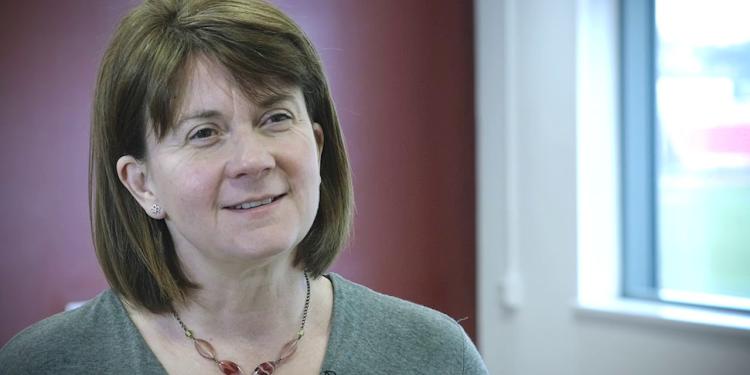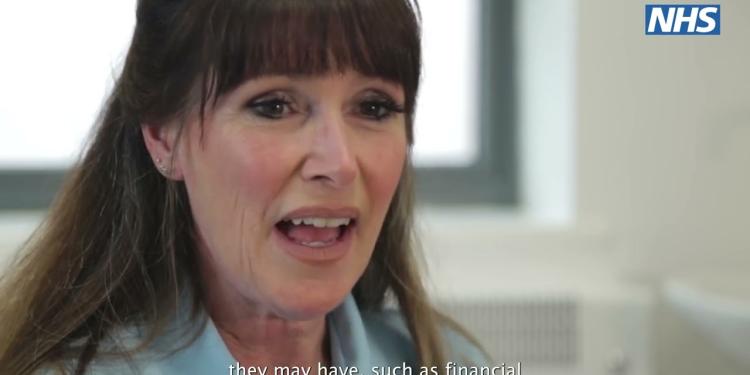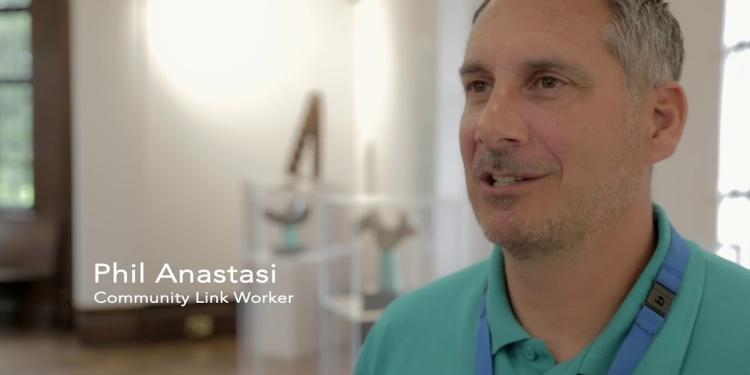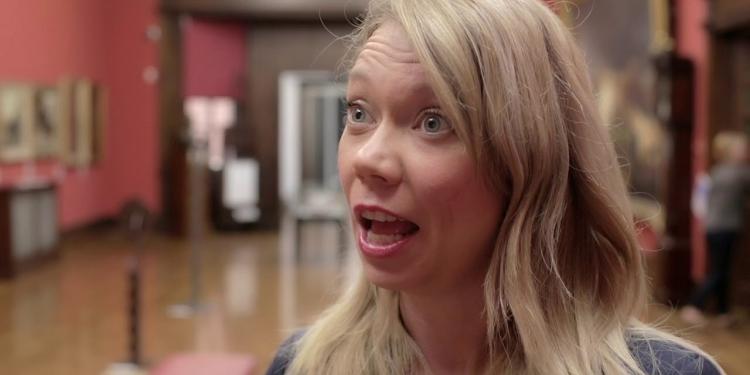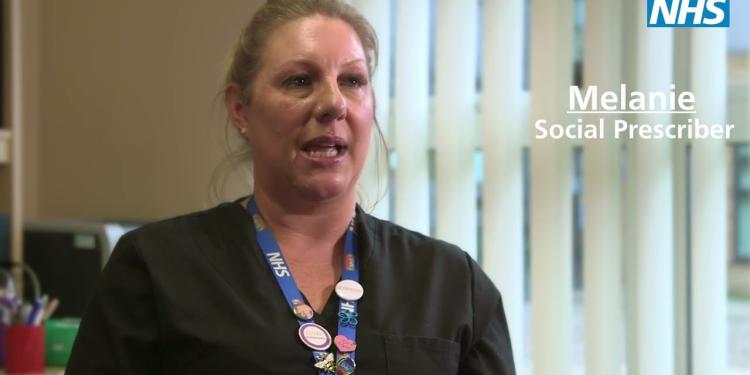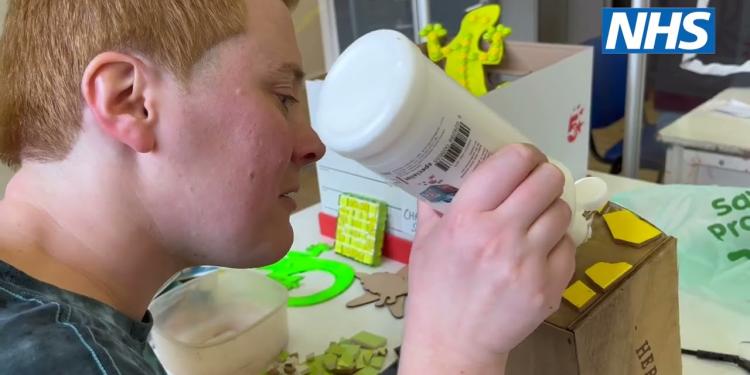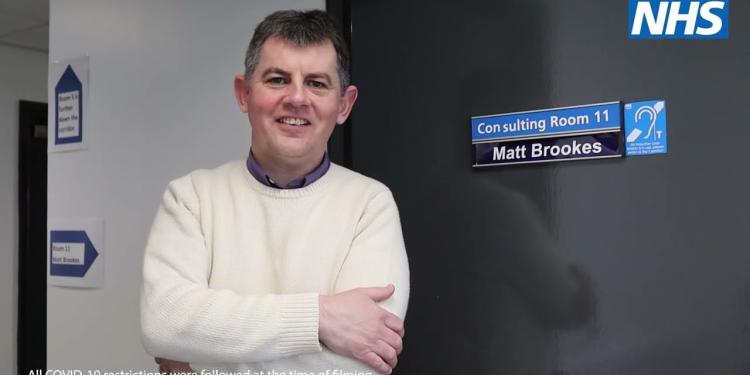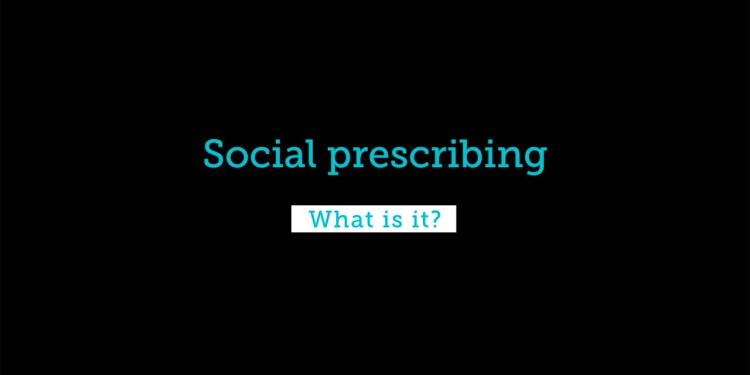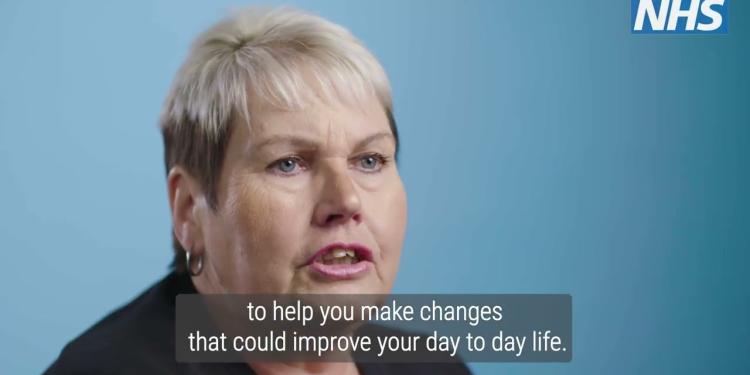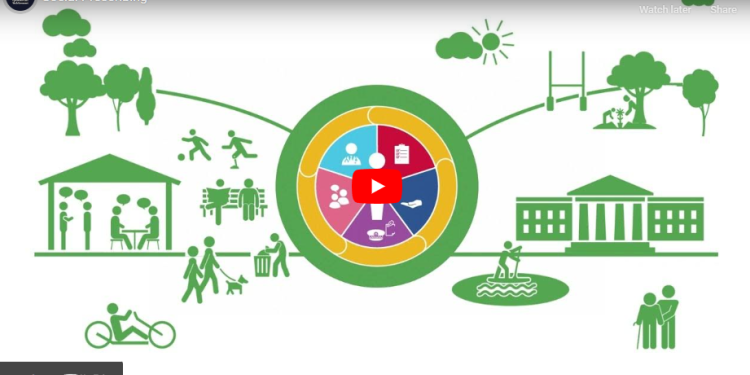Important Information On Using This Service
- Ergsy carefully checks the information in the videos we provide here.
- Videos shown by YouTube after a video has completed have NOT been reviewed by ERGSY.
- To view, click the arrow in the center of the video.
Using Subtitles and Closed Captions
- Most of the videos you find here will have subtitles and/or closed captions available.
- You may need to turn these on and choose your preferred language.
Turn Captions On or Off
- Go to the video you'd like to watch.
- If closed captions (CC) are available, settings will be visible on the bottom right of the video player.
- To turn on captions, click settings.
- To turn off captions, click settings again.
Find A Professional
More Items From Ergsy search
-
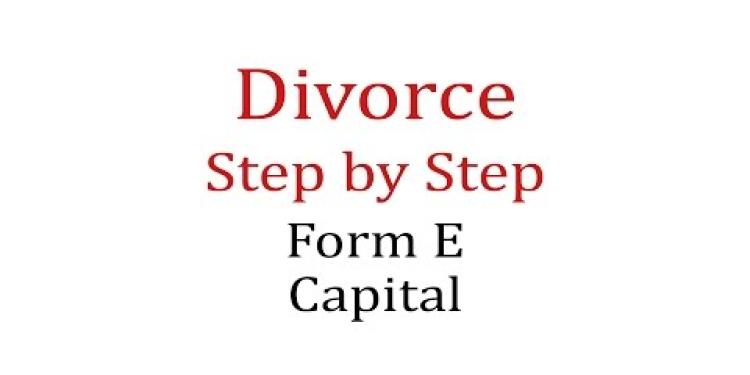
Divorce Step By Step - Form E - Capital
Relevance: 100%
-
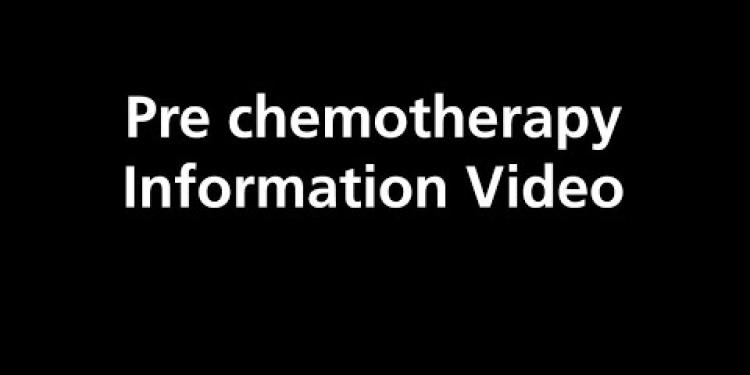
Pre chemotherapy Information Video
Relevance: 63%
-
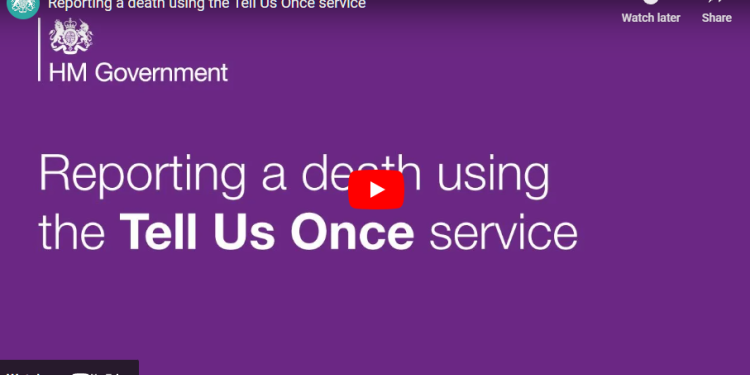
Reporting a death using the "Tell Us Once" service
Relevance: 60%
-
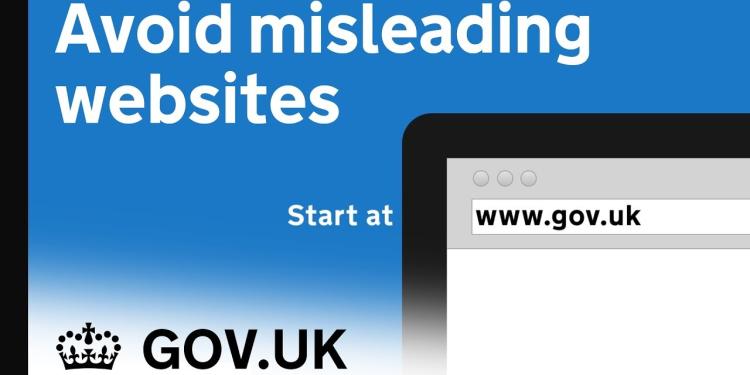
Avoid misleading websites that copy government websites GOV.UK
Relevance: 57%
-
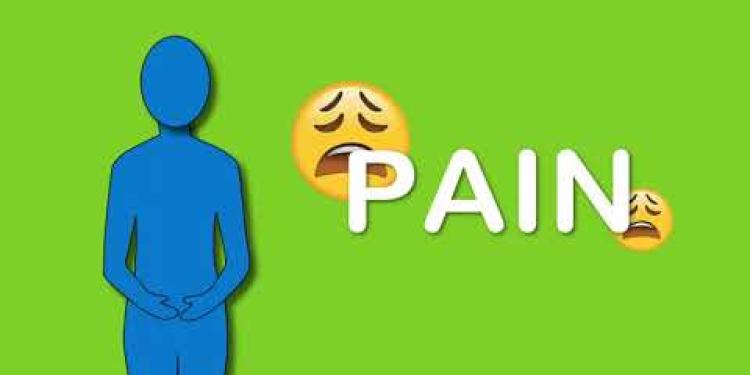
NHS STI (Sexually Transmitted Infections) Information Video
Relevance: 57%
-

Don't Click On That Email (SPAM & SCAMS)
Relevance: 54%
-
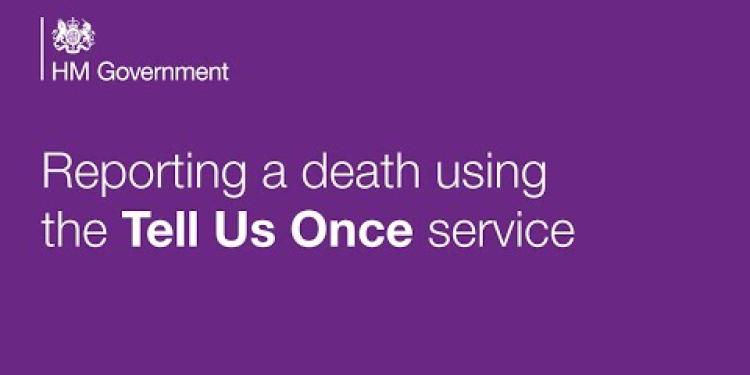
Reporting a death using the Tell Us Once service
Relevance: 49%
-
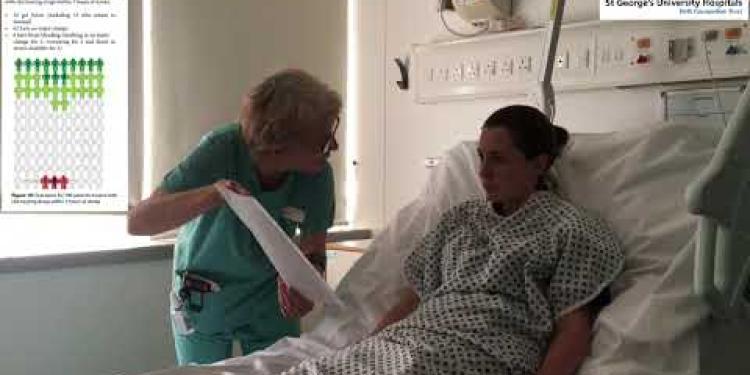
Gaining consent from stroke patients
Relevance: 46%
-
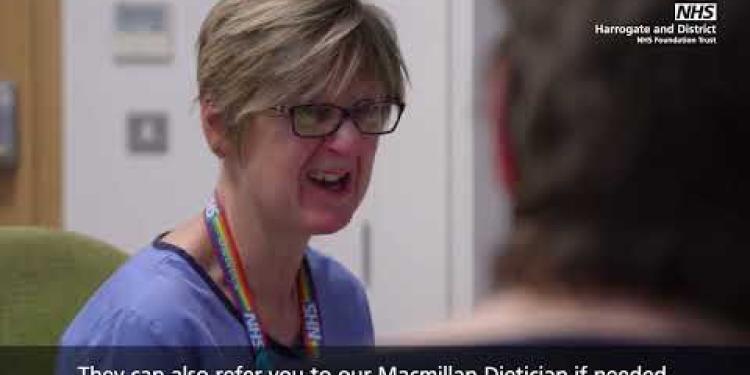
Information for all cancer patients receiving Chemotherapy or Targeted Therapy at HDFT.
Relevance: 43%
-
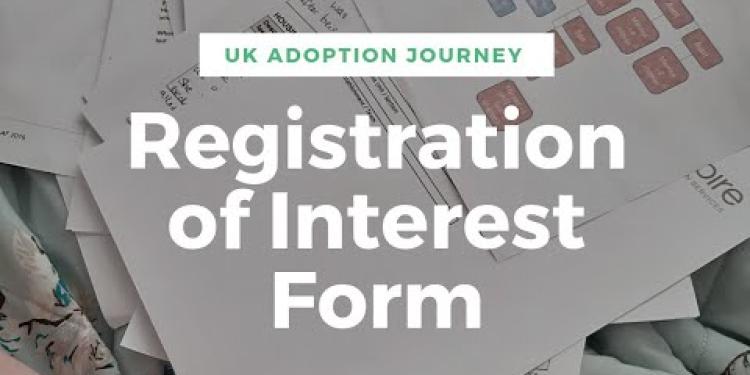
Registration of Interest Form | UK Adoption Journey
Relevance: 41%
-

Clinical Handover - Care 24/7
Relevance: 41%
-
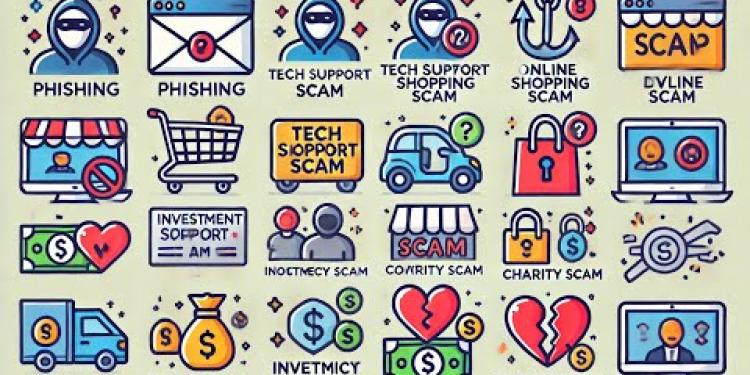
Don't Fall for These 7 Cybersecurity Scams!
Relevance: 40%
-
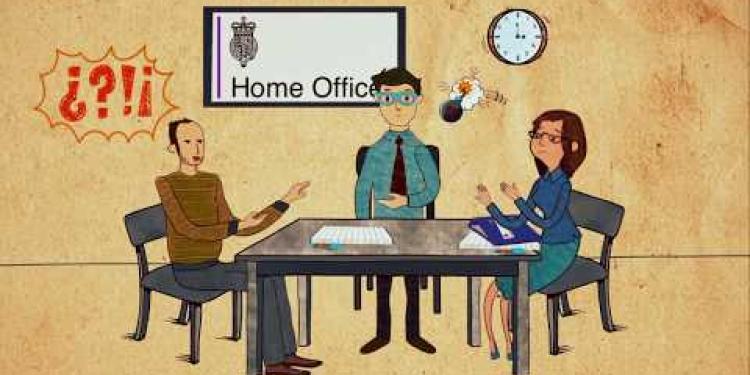
The asylum screening interview
Relevance: 39%
-
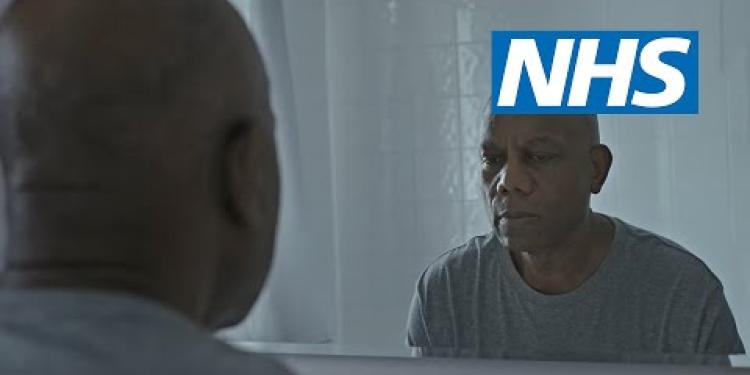
Worried about signs that could be cancer? Contact your GP practice | NHS
Relevance: 38%
-

Phishing Scams EXPOSED Don't Fall Victim to These Tricks!
Relevance: 37%
-
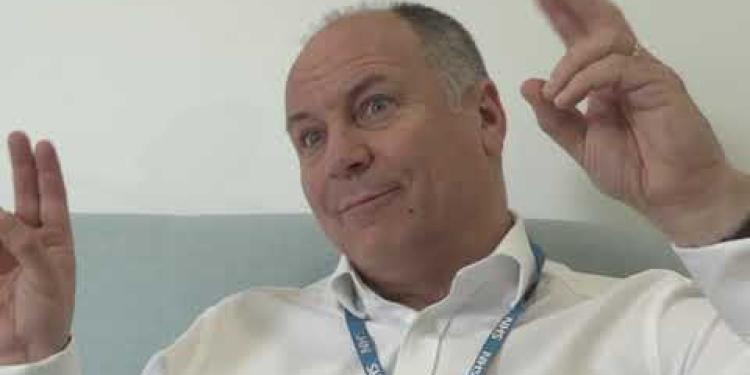
Useful information for patients with lower back pain
Relevance: 35%
-
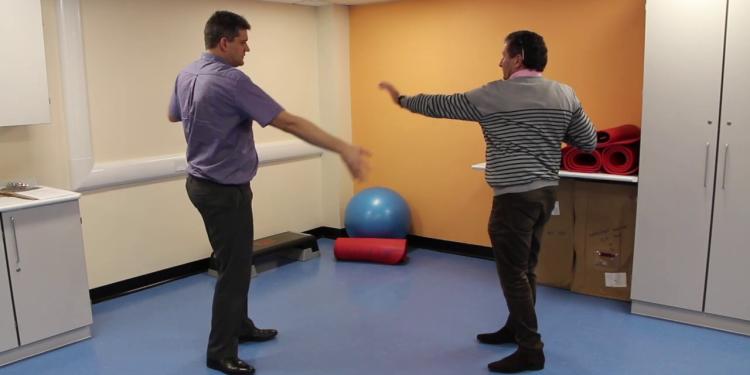
Sean's Story - There is another way. Information for prescribers
Relevance: 34%
-
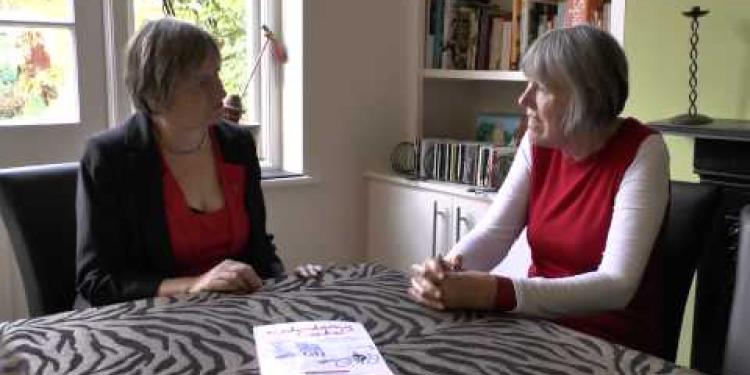
Redundancy Crusader and Annabel Kaye on communications in redundancy (5).MTS
Relevance: 34%
-

Patient Information Video - Leeds Stress Echocardiography Service
Relevance: 32%
-

Scams of 2024/2025 ? (Be Aware)
Relevance: 32%
-
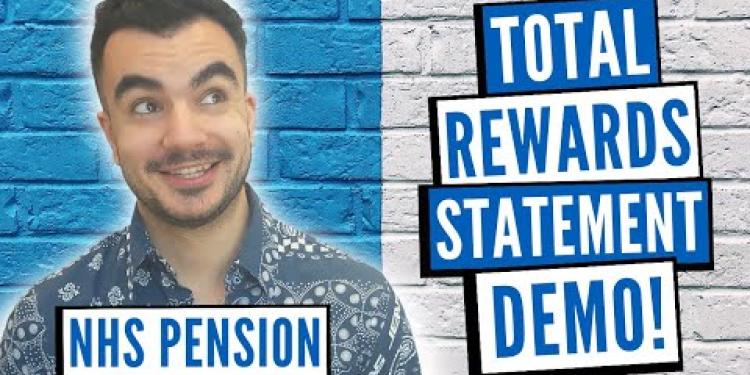
NHS Pension - Total Rewards Statement Explained
Relevance: 32%
-

Common Scams to Avoid in 2025 (And How to Outsmart Them!) | Stay Safe Online
Relevance: 28%
-
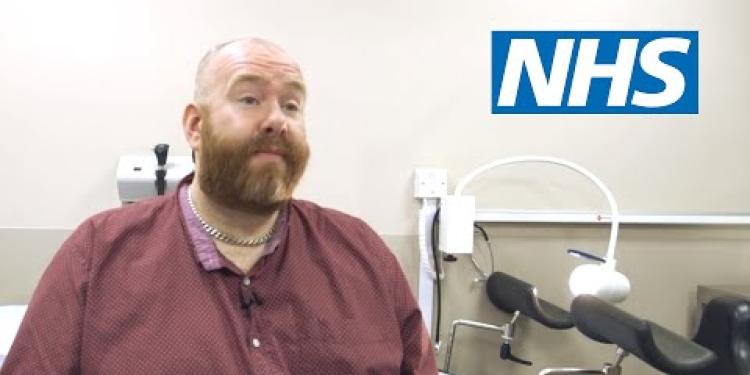
Cervical screening for transgender men | NHS
Relevance: 27%
-

Finding out about Fibroids - information for patients
Relevance: 27%
-
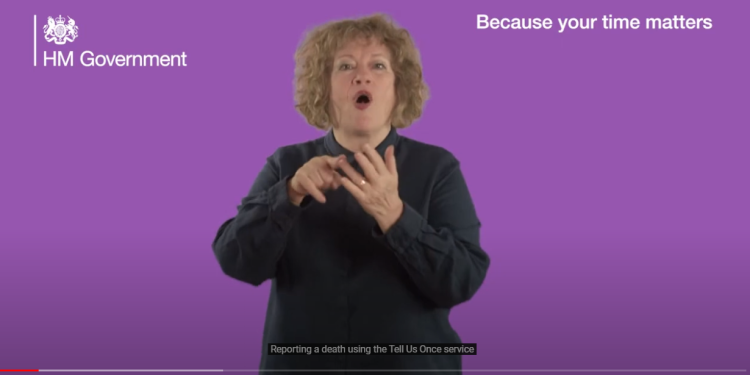
Reporting a death using the Tell Us Once service - Sign Language Version
Relevance: 27%
-

Common Scams to Avoid in 2025 (And How to Outsmart Them!) | Stay Safe Online
Relevance: 27%
-
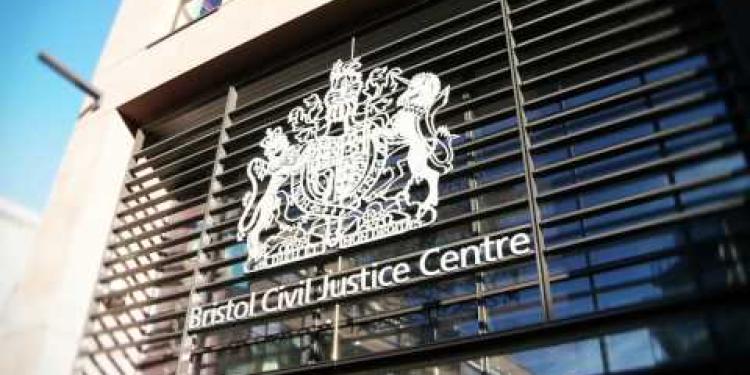
The Family Court without a Lawyer - Video 1 of 3
Relevance: 27%
-
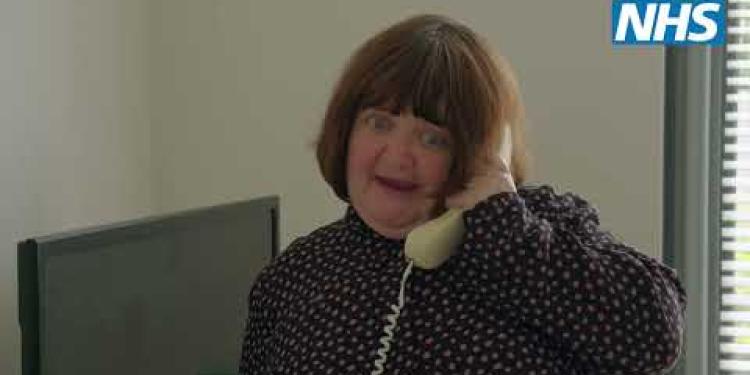
Accessing cervical screening with the right support for people with a learning disability
Relevance: 26%
-
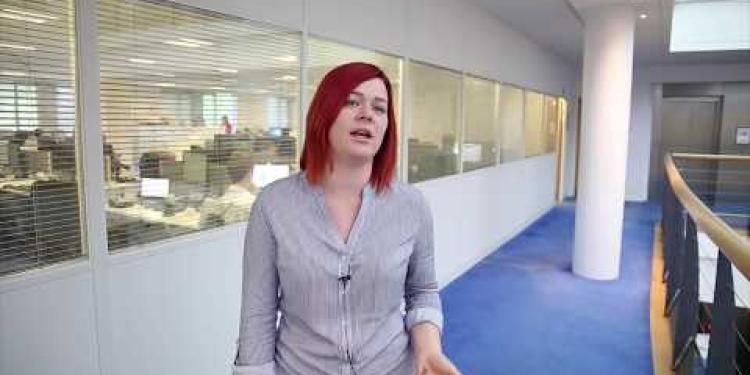
Applying For Universal Credit
Relevance: 26%
-
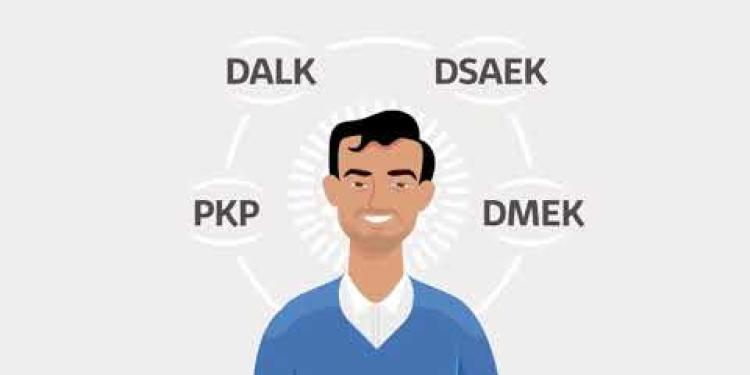
Cornea transplant patient Information
Relevance: 26%
-
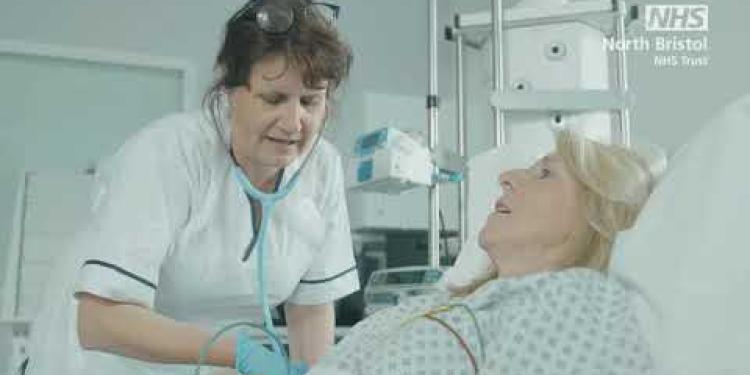
Your stay on the Intensive Care Unit at North Bristol NHS Trust
Relevance: 26%
-
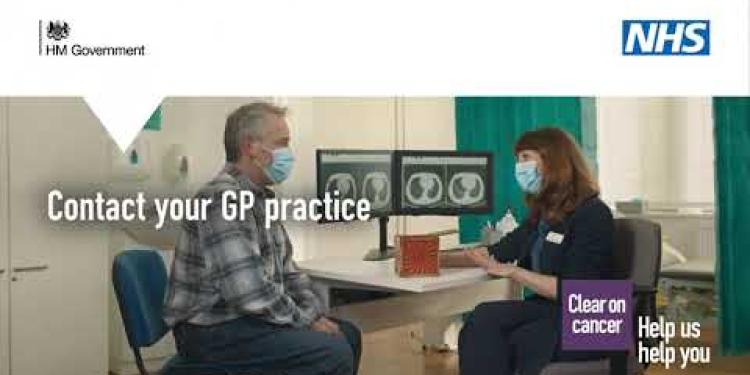
Don't carry the worry of cancer with you | NHS
Relevance: 25%
-
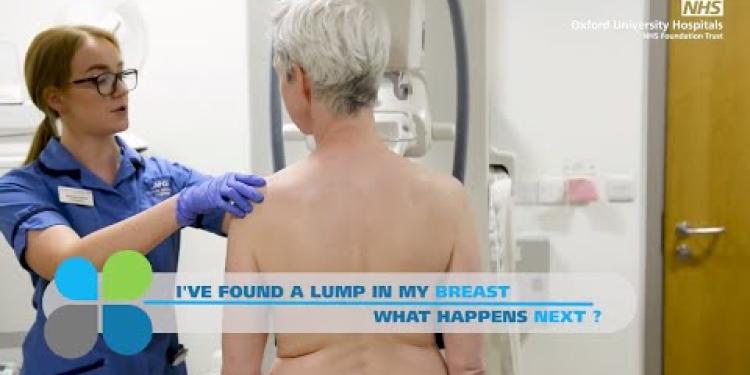
I've found a lump in my breast - What happens next? The breast diagnostic clinic
Relevance: 25%
-
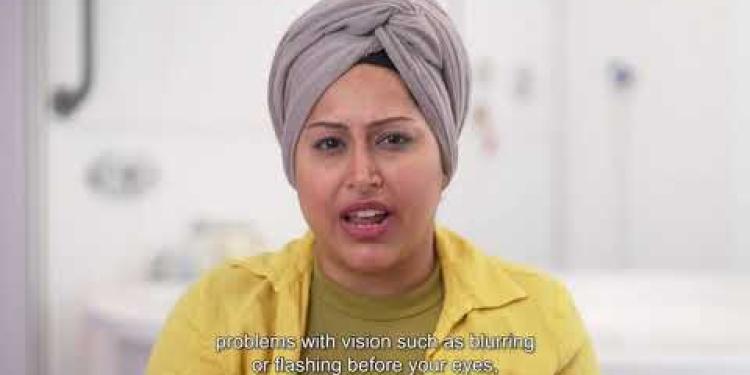
Pre eclampsia - NHS Maternity Safety Information
Relevance: 25%
-
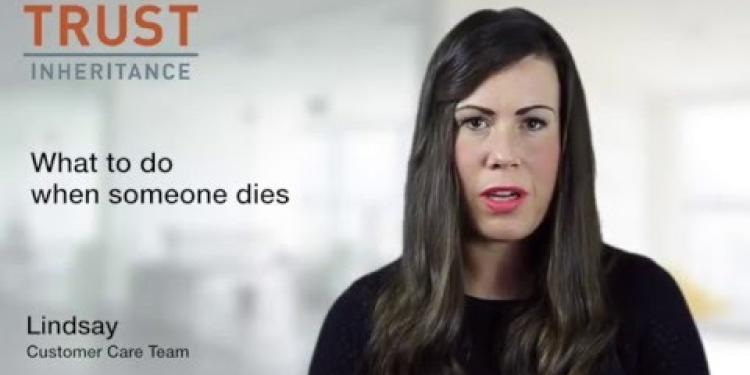
What to do when someone dies
Relevance: 25%
-

Crypto Scams Exposed - Protect Your Investments Now!
Relevance: 25%
-
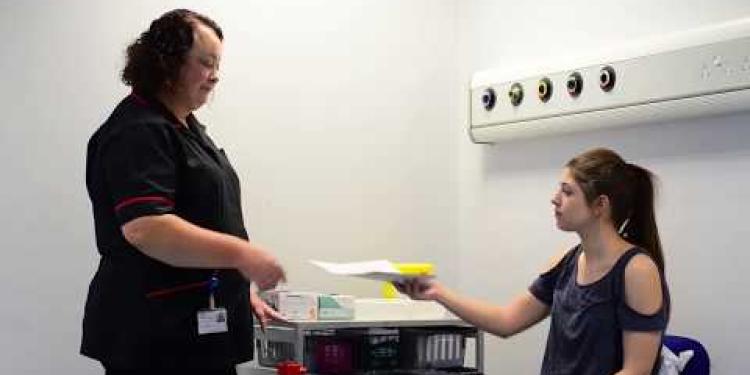
Having a blood test
Relevance: 25%
-
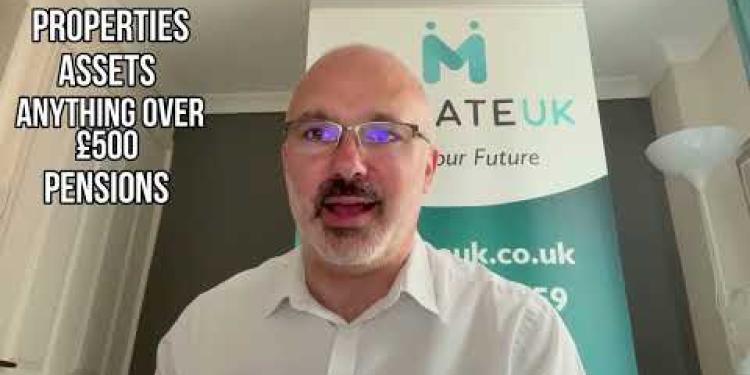
Ultimate Guide to Financial Disclosure on Divorce in the UK
Relevance: 24%
-
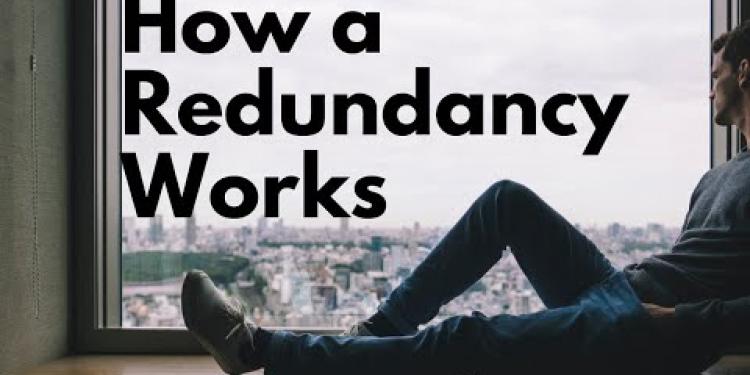
HOW A REDUNDANCY WORKS - General Information
Relevance: 24%
-
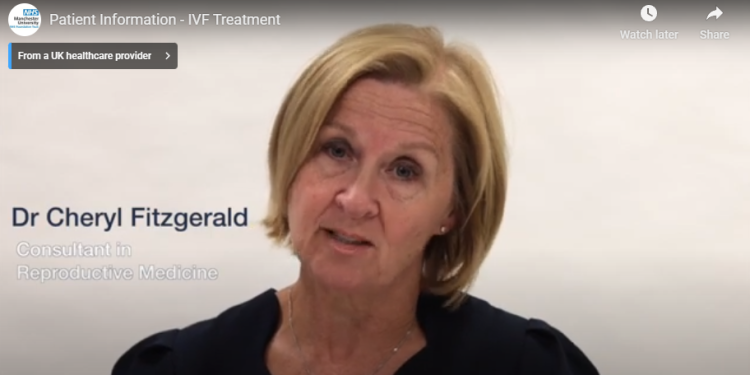
Infertility - IVF Treatment and Patient Information
Relevance: 24%
Sean's Story - There is Another Way: Information for Prescribers
Introduction
Sean's Story - "There is Another Way" is a comprehensive case study aimed at helping healthcare professionals understand alternative approaches to managing patients with chronic pain and dependency issues. The story focuses on Sean, a resident of the United Kingdom, who found a path to recovery through non-opioid treatments under the guidance of dedicated healthcare providers. This case study serves as a crucial resource for prescribers looking to implement more sustainable and effective pain management strategies.
Sean's Journey
Sean, a 34-year-old male, had been struggling with chronic pain and opioid dependency for several years. Despite multiple attempts at conventional treatment, his condition showed little improvement. Sean's journey to recovery began when his healthcare team decided to explore alternative treatment modalities. This multidisciplinary approach not only aimed at pain relief but also at improving his overall quality of life.
Alternative Treatments
The key to Sean's successful recovery was the implementation of non-opioid therapies. These included:
- Physical therapy: Regular, targeted exercises helped to reduce pain and improve mobility.
- Cognitive-behavioral therapy (CBT): This form of psychotherapy was instrumental in addressing the psychological aspects of Sean's pain and dependency.
- Non-opioid medications: Drugs such as NSAIDs (Nonsteroidal anti-inflammatory drugs) and anticonvulsants were used to manage pain without the risk of addiction.
- Complementary therapies: Acupuncture and mindfulness meditation provided additional pain relief and mental well-being.
Role of Healthcare Providers
For prescribers, Sean's story underscores the importance of a holistic approach. Healthcare providers should consider the following strategies:
- Conduct thorough assessments: Understanding the patient's history and current status is crucial for developing an effective treatment plan.
- Utilize a multidisciplinary team: Collaborating with physical therapists, psychologists, and other specialists can provide comprehensive care.
- Educate patients: Informing patients about the risks of opioid use and the benefits of alternative treatments empowers them to make informed decisions.
- Monitor progress: Regular follow-ups and adjustments to the treatment plan are essential to ensure the best outcomes.
Conclusion
Sean's Story - "There is Another Way" offers invaluable insights for prescribers in the UK, highlighting the effectiveness of alternative pain management strategies. By adopting a holistic, patient-centered approach, healthcare providers can significantly improve outcomes for patients struggling with chronic pain and opioid dependency. Implementing these practices can lead to more sustainable, long-term recovery, ultimately enhancing the quality of life for many individuals like Sean.
Sean's Story - There is Another Way: Information for Prescribers
Introduction
This is Sean's story. It is about helping doctors and nurses find different ways to help people with long-term pain. Sean lives in the UK. He felt better with treatments that did not use opioids, with the help of caring doctors. This story helps doctors learn new ways to help people feel better without using strong pain medicines.
Sean's Journey
Sean is 34 years old. He had a lot of pain for a long time and took strong medicine that can be addictive. Regular treatments did not help much. Sean got better when his doctors tried new kinds of treatments. They wanted to help his pain and make his life better too.
Alternative Treatments
Sean got better with treatments that did not use opioids, like:
- Physical therapy: Doing special exercises often helped Sean have less pain and move better.
- Cognitive-behavioral therapy (CBT): Talking with a therapist helped Sean think differently about his pain and feel better emotionally.
- Non-opioid medications: Medicines like NSAIDs (Nonsteroidal anti-inflammatory drugs) helped with pain without being addictive.
- Complementary therapies: Things like acupuncture and mindfulness meditation gave Sean more pain relief and peace of mind.
Role of Healthcare Providers
For doctors and nurses, Sean's story shows how important it is to care for the whole person. Here's what they can do:
- Check patients carefully: Knowing the patient’s story and current health is important to help them.
- Work with a team: Working with different experts, like therapists and psychologists, helps give better care.
- Teach patients: Telling patients why opioid use can be risky and sharing other options helps them choose wisely.
- Watch progress: Regular check-ins and updating the treatment plan are important for the best results.
Conclusion
Sean's Story - "There is Another Way" helps doctors in the UK see how other treatments can work well. By caring for the whole person and using non-opioid options, doctors can help people with long-term pain feel better and live better lives. This way, more people like Sean can get healthier and have happier lives.
Frequently Asked Questions
What was Sean's Story about?
Sean's Story is about a young man named Sean who struggled with mental health issues and found a different path to recovery beyond medication.
What alternatives to medication did Sean explore?
Sean explored therapy, lifestyle changes, support groups, and other non-pharmaceutical interventions to manage his mental health.
Why is Sean's Story relevant to prescribers?
Sean's Story is relevant to prescribers because it highlights the importance of considering holistic and patient-centered approaches to treatment, beyond just medication.
How can prescribers support patients seeking alternative treatments?
Prescribers can support patients by being open to discussing various treatment options, actively listening to patient preferences, and collaborating with other healthcare professionals.
What role do lifestyle changes play in managing mental health?
Lifestyle changes such as regular exercise, healthy eating, adequate sleep, and stress management can significantly improve mental health and complement other treatments.
Are support groups effective for mental health recovery?
Support groups can be very effective, providing emotional support, shared experiences, and a sense of community for individuals in recovery.
What is the importance of therapy in mental health treatment?
Therapy is crucial as it helps individuals understand and manage their thoughts, feelings, and behaviors, leading to long-term mental health improvement.
How can prescribers ensure a holistic approach to mental health treatment?
Prescribers can ensure a holistic approach by integrating medical, psychological, and social interventions tailored to the individual needs of the patient.
What types of therapy did Sean find helpful?
Sean found cognitive-behavioral therapy (CBT) and other forms of talk therapy helpful in managing his mental health.
How important is patient autonomy in mental health treatment?
Patient autonomy is crucial, as it empowers individuals to make informed decisions about their treatment, leading to better engagement and outcomes.
What should prescribers consider when discussing treatment options?
Prescribers should consider the patient's preferences, lifestyle, and overall health, and provide information on all possible options, including non-medical treatments.
Can combining medication with other treatments be beneficial?
Yes, combining medication with therapy, lifestyle changes, and support groups can offer a more comprehensive approach to mental health care.
What challenges did Sean face in his recovery journey?
Sean faced challenges such as stigma, finding the right support, and navigating the healthcare system for appropriate resources.
How can prescribers help reduce the stigma around mental health?
Prescribers can help reduce stigma by offering compassionate care, educating patients and the public, and advocating for mental health awareness.
What resources are available in the UK for mental health support?
In the UK, resources such as the NHS, Mind, Samaritans, and local mental health charities provide support, therapy, and information for those in need.
What happened in Sean's Story?
Sean's Story is about a young man named Sean. Sean had problems with his mental health. He found a new way to get better without using medicine.
What other things did Sean try instead of medicine?
Sean tried different ways to feel better without using medicine. He talked to a therapist, changed some things in his life, and joined support groups.
Why Should Prescribers Know About Sean's Story?
It is important for prescribers to know about Sean's Story. It can help them understand their patients better. Knowing stories like Sean's can make prescribers more caring and careful.
Prescribers can use tools to help them understand. They can use pictures, videos, or stories like Sean's to learn more. This helps them make better decisions for their patients.
Sean's Story is important for doctors. It shows how doctors should look at the whole person, not just give them medicine. Doctors need to think about all the ways to help someone get better.
How can doctors help patients who want other treatments?
Doctors can help patients by:
- Listening carefully to what the patient wants.
- Giving clear and simple information about other treatments.
- Making sure the patient feels safe and understood.
- Using pictures or charts to explain things if needed.
- Suggesting helpful tools, like websites or apps, for more information.
Doctors can help patients by talking about different ways to get better, listening carefully to what patients want, and working together with other healthcare helpers.
How can changing your life help you feel better?
Changing how you live can help your mind feel better. Doing things like eating healthy food, sleeping enough, and moving your body can help. It is also important to talk to friends and do fun things. Taking time to relax and doing things you like can make you happier.
Here are some things that can help:
- Eat good food. It helps your brain work well.
- Sleep well at night. This makes you feel rested and happy.
- Move your body. Play outside or do sports to feel good.
- Talk to people. Sharing your feelings can help.
- Find ways to relax. Try drawing, reading, or listening to music.
Ask for help if you need it. People like your family, friends, or teachers can support you.
Making small changes in how we live can make us feel happier and healthier. Doing things like moving our bodies often, eating good foods, getting enough sleep, and finding ways to relax can help a lot. These changes can work well with other ways to feel better.
Do support groups help people feel better?
Support groups are meetings where people talk about their feelings and problems. They can help people who feel sad or worried. Support groups have people who care and listen. This can make people feel better.
If you are thinking about joining a support group, here are some ideas to help you:
- Find a group that talks about what you are feeling.
- Talk to a trusted adult or friend about your feelings.
- Use a notebook to write down your feelings.
Support groups can help, but remember everyone is different. Find what works best for you!
Support groups can be very helpful. They give people in recovery emotional support. People can share experiences, and they feel like part of a community.
Why is talking to a therapist important for feeling better?
Therapy means talking to a therapist.
It helps you understand how you feel.
It can make you feel better.
Here are some ways therapy can help:
- You learn new ways to solve problems.
- You learn how to talk about your feelings.
- The therapist is a safe person to talk to.
You can also try these tools:
- Write down what you feel in a diary.
- Draw pictures to show your feelings.
Talking to a therapist is very important. It helps people understand their thoughts, feelings, and actions. This can make their minds feel better for a long time.
How can doctors help the whole person when treating mental health?
Doctors can help people in a better way. They can do this by looking at the whole picture. They should think about the person's body, mind, and how they live. This way, they can give the right help to each person.
What therapy helped Sean feel better?
Sean found talking to someone about his feelings very helpful. This is called talk therapy. One kind of this therapy is called CBT. It helped Sean feel better.
Why is it important for patients to make their own choices in mental health care?
It's important for people to have a say in their own health care. This means they can make choices about their treatment.
Here is why it's important:
- People know what they feel and need.
- Choosing helps people feel more in control.
- It can make people happier with their care.
Here are some tools to help:
- Ask questions to understand better.
- Make a list of what you need and want.
- Use pictures or apps to explain how you feel.
It is important for patients to make their own choices. This helps them feel in control and leads to better results from their treatment. It is good to ask questions and talk with doctors to understand all the information. Using simple charts or drawings can help understand the choices better.
What should doctors think about when talking about treatment choices?
Doctors should think about what the patient likes, how they live, and their health. They should tell the patient about all the choices they have, not just medicines. This includes other types of help too.
Can taking medicine with other treatments help?
Some people feel better when they use medicine and do other things too. These things can be talking to someone who understands, like a counselor, or doing fun and relaxing activities. These are all ways to help people feel better.
If you think using medicine and other things could help you, talk to a doctor or someone you trust. They can support you and help you make a plan.
Yes, using medicine with therapy, changing your daily habits, and joining support groups can help you feel better and take good care of your mind.
What problems did Sean have while getting better?
Sean had some problems. People were not always nice to him. It was hard for him to find the help he needed. Going to the doctor was confusing, and he needed to find the right care.
How can doctors help people feel better about mental health?
Doctors can help people feel okay about mental health. Here are some ways:
- Talk kindly: Use simple and nice words when talking about mental health.
- Learn and share: Help people understand that mental health is like physical health.
- Listen: Pay attention to what people say and show that you care.
- Encourage: Tell people it is good to ask for help.
Tools to help: Use pictures, videos, or stories to make it easier to talk about mental health.
These steps can help everyone feel better and more accepted.
Doctors can help people feel better by being kind and caring. They can teach people about mental health and talk about why it's important.
What help can you get for feeling better in the UK?
There are places and people who can help you if you're feeling sad, worried, or upset. This is called mental health support.
Here are some ways to get help:
- You can talk to your family doctor (GP). They can listen to you and give advice.
- There are phone lines you can call, like Samaritans. They listen and talk to you about how you feel.
- You can speak to a school counselor if you are going to school. They are there to help you feel better.
- There are online chat services where you can type and talk to someone who can help.
Remember, it is okay to ask for help. Talking to someone can help you feel better.
In the UK, places like the NHS, Mind, Samaritans, and local charities help people. They give support, therapy, and information to those who need it.
Useful Links
Useful links from: Strategies for Reducing Loneliness and Social Isolation in Urban Areas
- NHS - Loneliness in older people The NHS provides information on how loneliness can affect older people and offers strategies and advice on reducing social isolation, including physical activity and community engagement.
- Age UK - Tackling Loneliness Age UK offers resources and support for older individuals experiencing loneliness and social isolation. The website provides practical advice, volunteer opportunities, and connection services.
- Campaign to End Loneliness The Campaign to End Loneliness works to ensure that loneliness is acted upon as a public health priority. The site offers research, tools, and blogs on strategies to combat loneliness in communities.
- Mind - Loneliness Mind, a UK-based mental health charity, provides information on the impact of loneliness on mental health and offers advice on how to manage feelings of isolation through various coping strategies and support networks.
Useful links from: Social prescribing in practice: supporting social prescribing link workers
- NHS Social Prescribing This NHS page provides comprehensive information on social prescribing, including how it works, its benefits, and resources for link workers.
- Social Prescribing Network The Social Prescribing Network promotes best practices and offers resources for practitioners, including events, research findings, and a newsletter.
- Royal Voluntary Service - Social Prescribing Royal Voluntary Service provides information on their social prescribing services and how they support individuals in connecting with local activities and services.
- National Academy for Social Prescribing This organization offers extensive resources, training, and support for social prescribing link workers, including partnerships and funding opportunities.
Useful links from: Introducing Social Prescribing - short video
- NHS England - Social Prescribing An overview of social prescribing in the NHS, explaining how it works and its benefits to patients and community health.
- The King's Fund - What is social prescribing? Detailed information from The King's Fund about what social prescribing is, including research, case studies, and best practices.
- Social Prescribing Network A resource site for the Social Prescribing Network, which connects individuals and organizations involved in social prescribing across the UK.
- National Academy for Social Prescribing An organization dedicated to advancing social prescribing through research, collaboration, and sharing best practices across the UK.
Useful links from: Social Prescribing
- NHS - Social Prescribing Learn about social prescribing on the NHS website. This page explains what social prescribing is, how it works, and its benefits in supporting health and well-being.
- The King's Fund - Social Prescribing Explore detailed insights and research on social prescribing from The King's Fund, an independent charity working to improve health and care in England.
- National Academy for Social Prescribing Visit the National Academy for Social Prescribing to find resources, news, and information on social prescribing initiatives across the UK.
- Mind - Social Prescribing Mind, a UK-based mental health charity, provides valuable information about social prescribing, its benefits, and how it can help improve mental health and well-being.
Useful links from: What is a social prescriber?
- NHS - Social Prescribing This page on the NHS website provides an overview of social prescribing, explaining what it is, how it works, and the benefits it can bring to individuals and communities.
- National Academy for Social Prescribing The National Academy for Social Prescribing supports the advancement of social prescribing through various initiatives, resources, and partnerships across the UK.
- Mind - Social Prescribing Mind, the UK mental health charity, provides information on social prescribing, how it can help mental health, and offers resources for those looking to get involved.
- The King's Fund - Social Prescribing The King’s Fund is a health and care charity that provides insights and research on social prescribing, including its impact, potential challenges, and future development in the UK's healthcare system.
Useful links from: Social Prescribing in Greater Manchester
- NHS Social Prescribing Information on social prescribing from the NHS England website, including how it works and its benefits.
- Greater Manchester Health and Social Care Partnership Details about social prescribing initiatives and support in Greater Manchester, provided by the Greater Manchester Health and Social Care Partnership.
- RHS Bridgewater Social Prescribing Information about social prescribing initiatives at RHS Garden Bridgewater, including activities focused on improving mental health and wellbeing through gardening.
- The King's Fund - Social Prescribing An overview of social prescribing from The King's Fund, providing research, policy analysis, and case studies.
Useful links from: What is a social prescriber, and how do they support general practice?
- NHS - Social Prescribing This page on the NHS website explains what social prescribing is and how it links patients to non-medical support in the community. It also describes the benefits for general practice and patient outcomes.
- National Academy for Social Prescribing The National Academy for Social Prescribing provides detailed information on what social prescribing is, how it works, and the impact it has on communities and general practices in the UK.
- Royal College of General Practitioners - Social Prescribing This page by the Royal College of General Practitioners outlines how social prescribing can support general practice, improve patient care, and addresses frequently asked questions.
- The King's Fund - What is Social Prescribing? The King's Fund provides an overview of social prescribing, its role in the healthcare system, how it supports general practitioners, and its impact on patients' mental and physical health.
Useful links from: Social prescribing – what is it?
- NHS England - Social prescribing Information from NHS England on social prescribing, including what it is, how it works, and its benefits for patients.
- National Academy for Social Prescribing The National Academy for Social Prescribing is a UK-based charity that promotes social prescribing and supports community organizations through research, advocacy, and partnerships.
- Mind - Social prescribing and community-based support Mind is a UK charity that provides comprehensive information on social prescribing and how it can help improve mental health by connecting individuals to community-based support.
- NHS Inform - Social prescribing NHS Inform offers detailed insight about social prescribing, focusing on how it can be used to improve health and wellbeing through various community services and activities.
Useful links from: Social Prescribing Link Workers are part of new health and wellbeing services in NHS surgeries
- NHS England - Social Prescribing Information about social prescribing, how it works, and the benefits for patients and healthcare services on the NHS England website.
- National Academy for Social Prescribing Home of the National Academy for Social Prescribing, supporting the implementation and success of social prescribing across the UK.
- The King's Fund - Social Prescribing The King's Fund provides in-depth research and analysis on the effectiveness and implementation of social prescribing in healthcare.
- Social Prescribing Network A UK-wide network that brings together people and organizations involved in social prescribing to share knowledge and best practices.
Useful links from: Social Prescribing
- NHS - Social prescribing and community-based support Official NHS page providing information on social prescribing, how it works, and its benefits. It offers resources and case studies on how social prescribing helps connect individuals to community support.
- The King's Fund - Social prescribing The King's Fund provides an overview of social prescribing, its advantages, and various models. It includes research, evidence, and policy analysis to support the implementation and scale-up of social prescribing.
- National Association of Link Workers This UK-based charity focuses on the concept of social prescribing link workers. The site provides training, support, and resources for social prescribing link workers who help patients to connect with community services.
- Social Prescribing Network The Social Prescribing Network offers networking and support for professionals involved in social prescribing. It provides resources, events, and best practices to improve and expand social prescribing services across the UK.
More Videos of Interestdiagnosis
Have you found an error, or do you have a link or some information you would like to share? Please let us know using the form below.
- Ergsy carfully checks the information in the videos we provide here.
- Videos shown by Youtube after a video has completed, have NOT been reviewed by ERGSY.
- To view, click the arrow in centre of video.
- Most of the videos you find here will have subtitles and/or closed captions available.
- You may need to turn these on, and choose your preferred language.
- Go to the video you'd like to watch.
- If closed captions (CC) are available, settings will be visible on the bottom right of the video player.
- To turn on Captions, click settings .
- To turn off Captions, click settings again.
